#Henry VI part III
Text
Shakes-Tourney, Round 1
(summaries from shakespeare.org.uk; further summaries and propaganda encouraged)
Comedy of Errors: Antiphonus searches for his long lost identical twin brother, Antiphonus, while his servant, Dromio, searches for his long lost identical twin brother, Dromio. Shenanigans ensue.
Henry VI part III: Henry and Edward can't be friends; Margaret wields a lot of power; they all battle and imprison and exile one another; Edward wins.
9 notes
·
View notes
Link
Yet scholars have not paid proper attention to the Groatsworth’s remarks about Shakespeare’s blank verse: that he “supposes he is as well able to bombast out a blank verse as the best of” the best playwrights. To “bombast” is to “stuff” or “swell.” According to Greene, Shakespeare’s blank verse is both too little and too much; he pads out its essential emptiness (its blankness, even) with portentous rhetoric and vacuous sound. In thinking about Shakespeare’s alleged “bombast,” we might consider whether he spoke others’ blank verse with a bellow (if he is one of the actorly “puppets […] that speak from our mouths”), and whether his own blank verse was especially or exclusively bombastic, or whether the Groatsworth was condemning the blank verse of the period as typically and vexatiously loud and then condemning Shakespeare for being unable, or all too able, to reach that miserable standard.
#shakespeare#william shakespeare#verse#blank verse#poetry#iambic pentameter#henry vi#henry vi part iii#tigers heart#oup blog
10 notes
·
View notes
Photo

Henry VI, Part III by William Shakespeare. Design by Manuja Waldia.
1 note
·
View note
Text
Shakespearean Villain Free-for-All
The setup: the villains from ten Shakespeare plays are all competing to become the rulers of a location that none of them are personally familiar with. (This is to prevent, say, Claudius having an unfair advantage in taking over Denmark.) They are allowed to use as much scheming, and as much physical violence, as they like, and they can have as much prep time as they need before they take action.
All teams will also have access to 5-10 soldiers/servants who can fight for them and carry out tasks that the main villains don't want to do.
However, team members (e.g., Macbeth and Lady Macbeth) are not allowed to side with another team or directly kill their own allies. They can fight with each other and hamper the team's overall ability to win, but they can't directly sabotage themselves.
Who takes the crown?
Side note: Regarding the characters from the history plays, this discussion is only considering their portrayals in Shakespeare's plays, not their real-life counterparts.
#shakespeare#othello#macbeth#king lear#cymbeline#much ado about nothing#as you like it#titus andronicus#hamlet#richard iii#henry vi part 3#shakespearean villains#poll
72 notes
·
View notes
Text
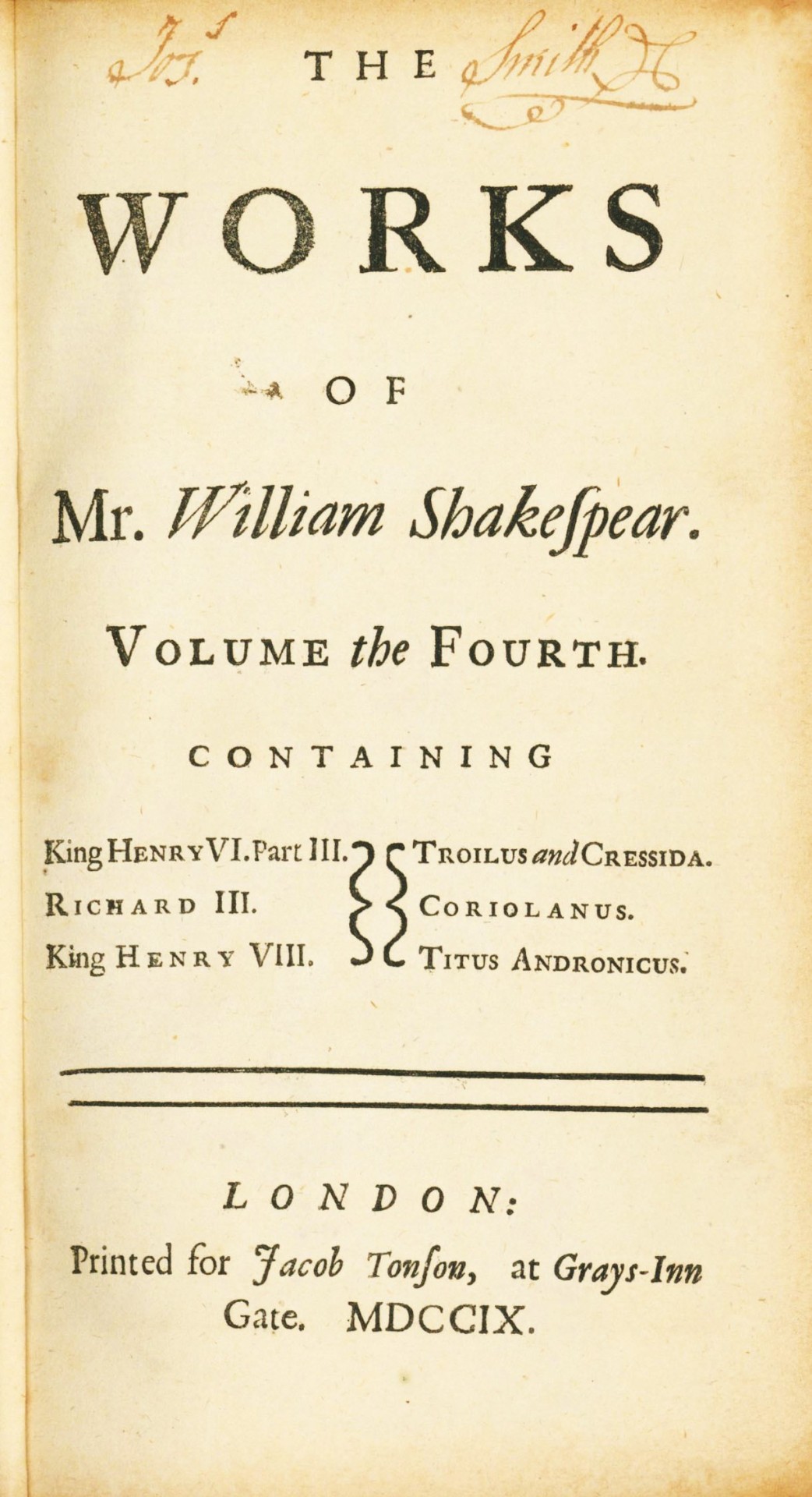
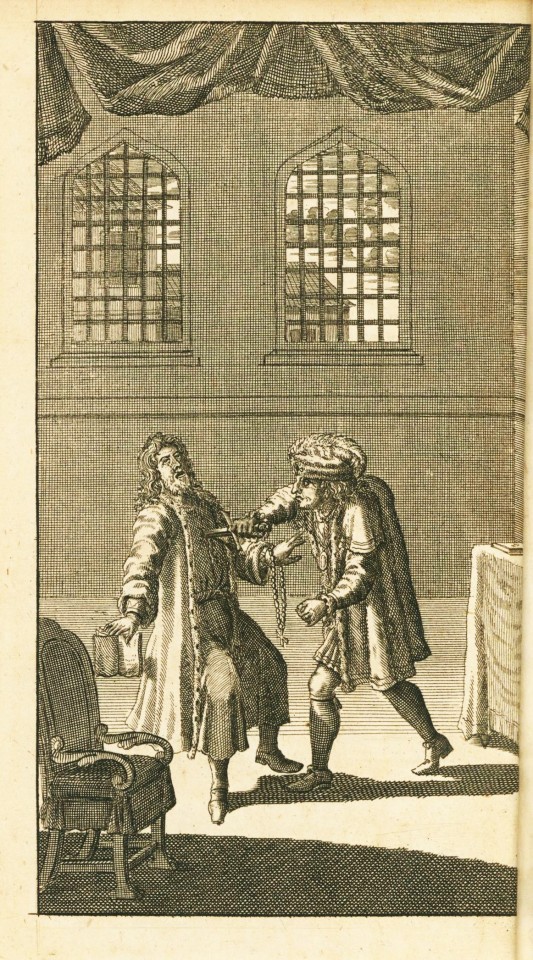
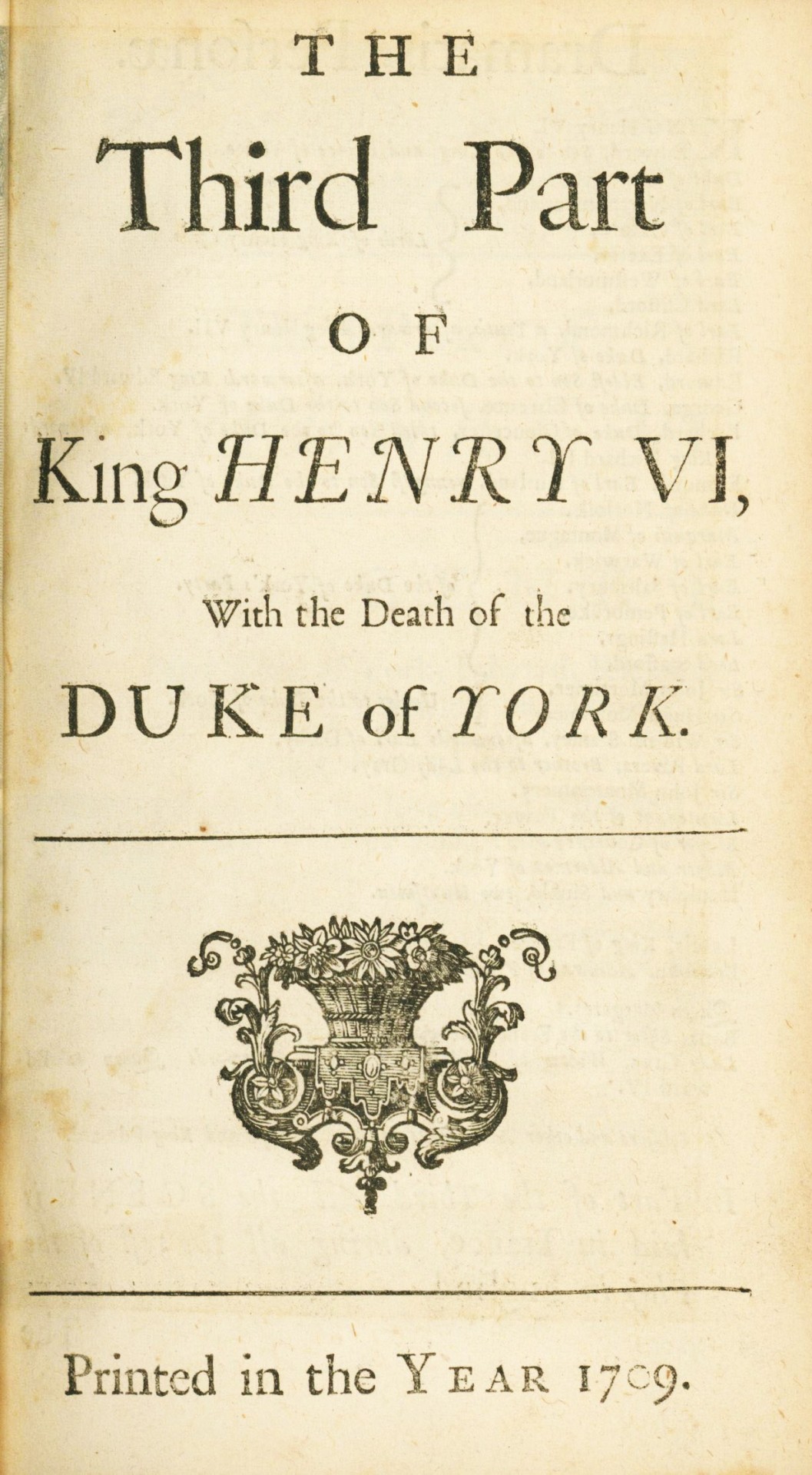


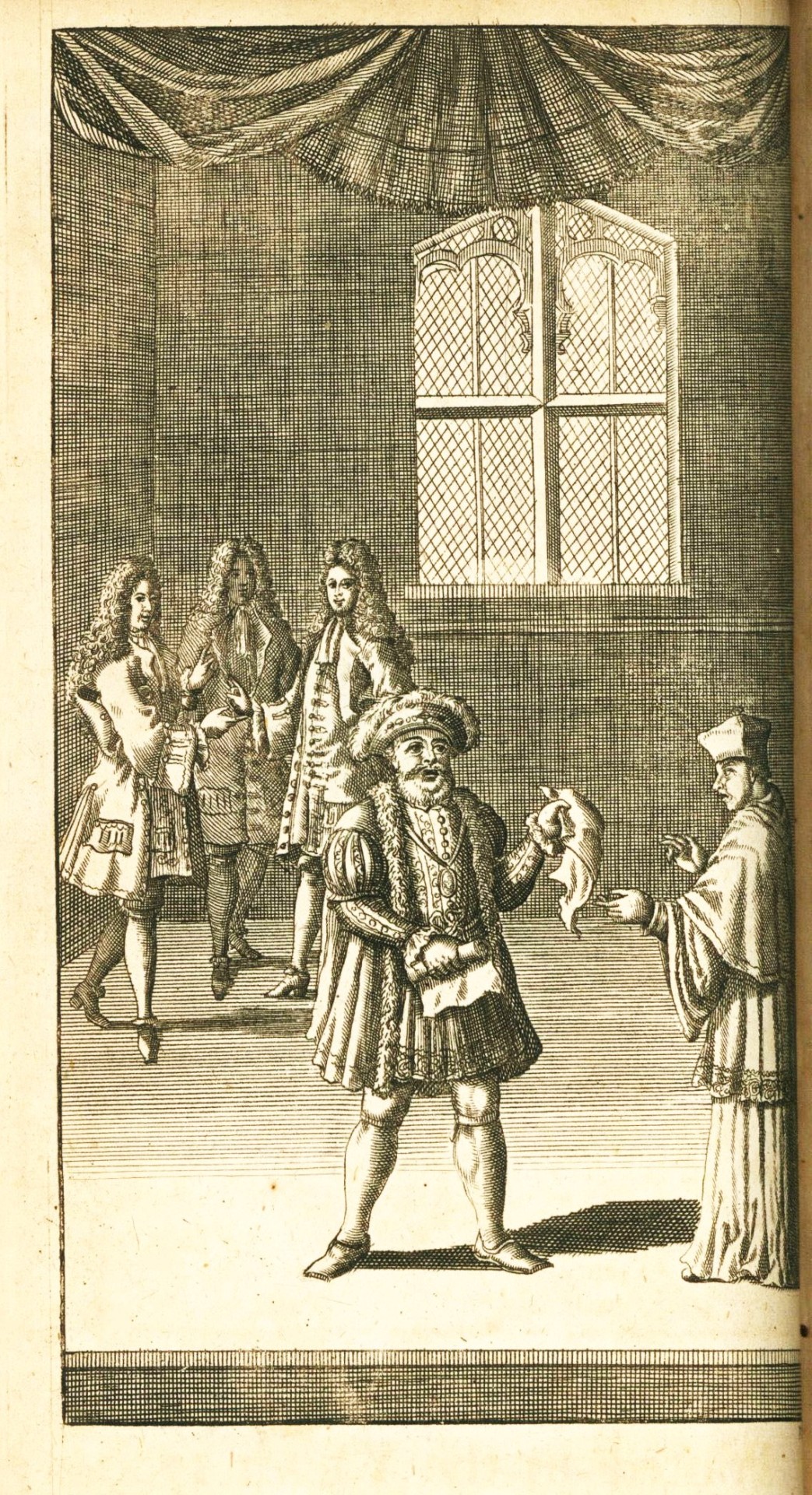

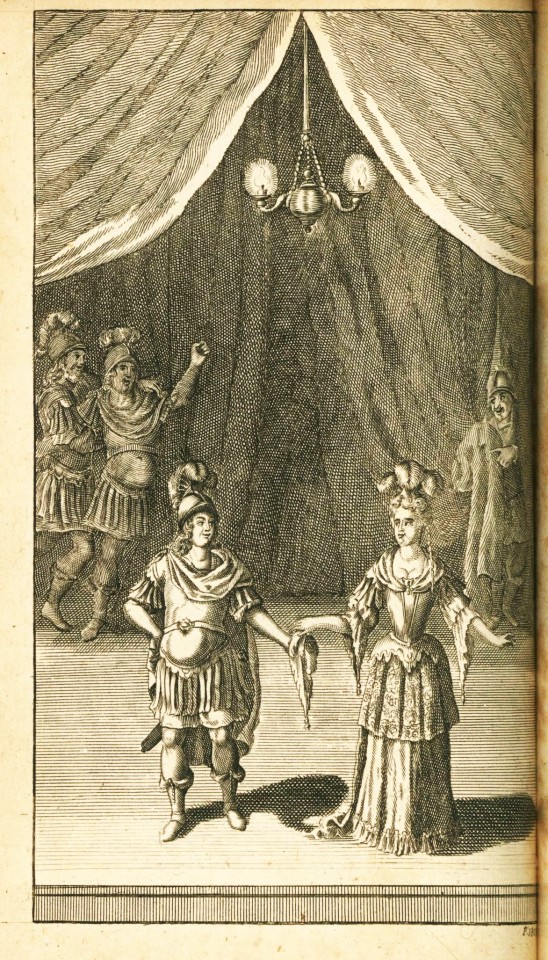
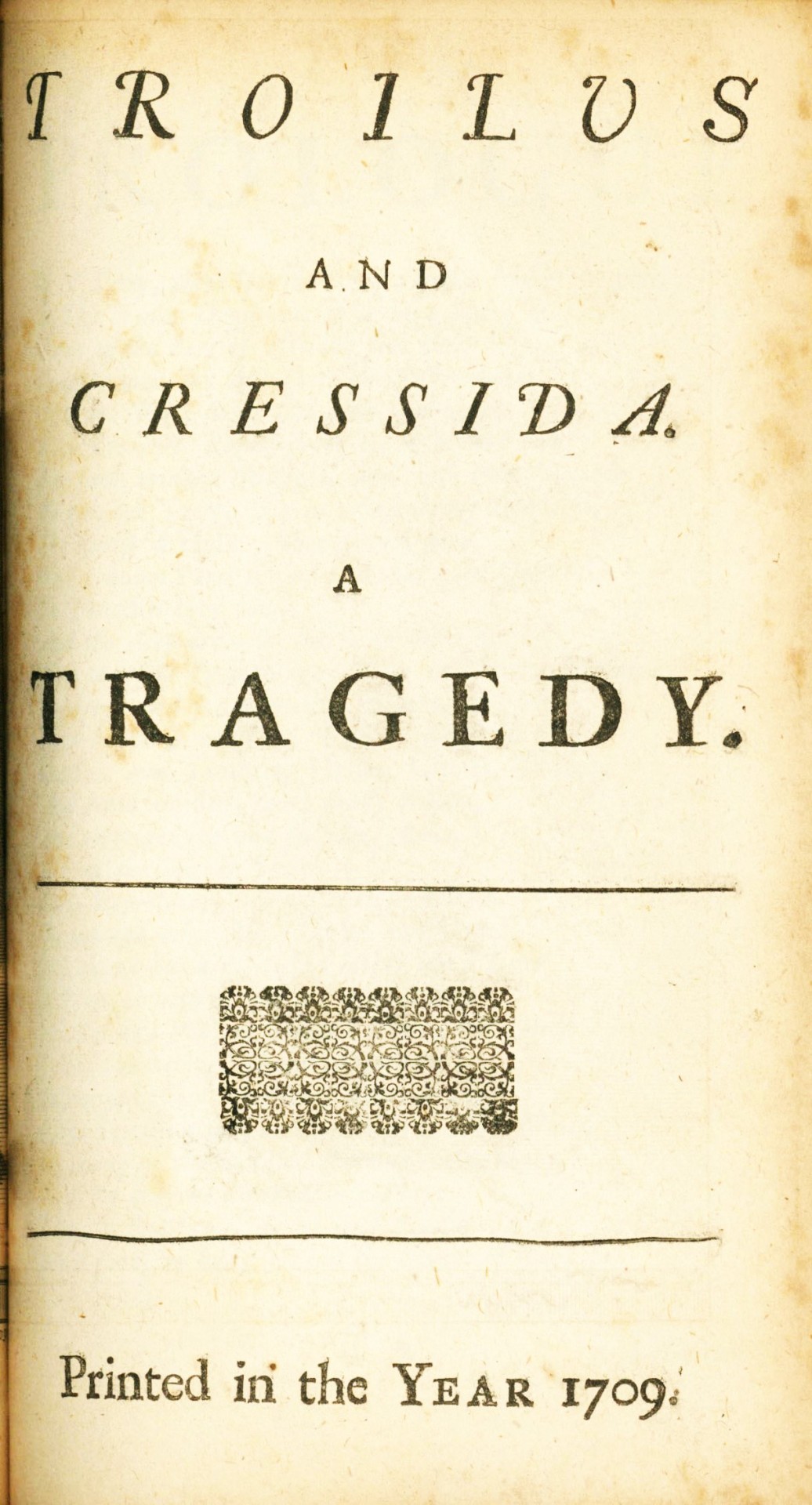


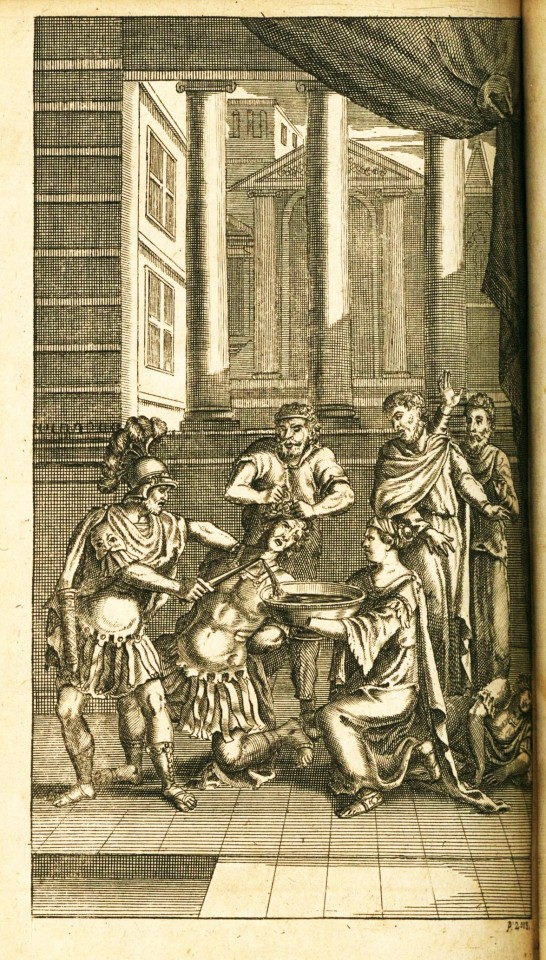
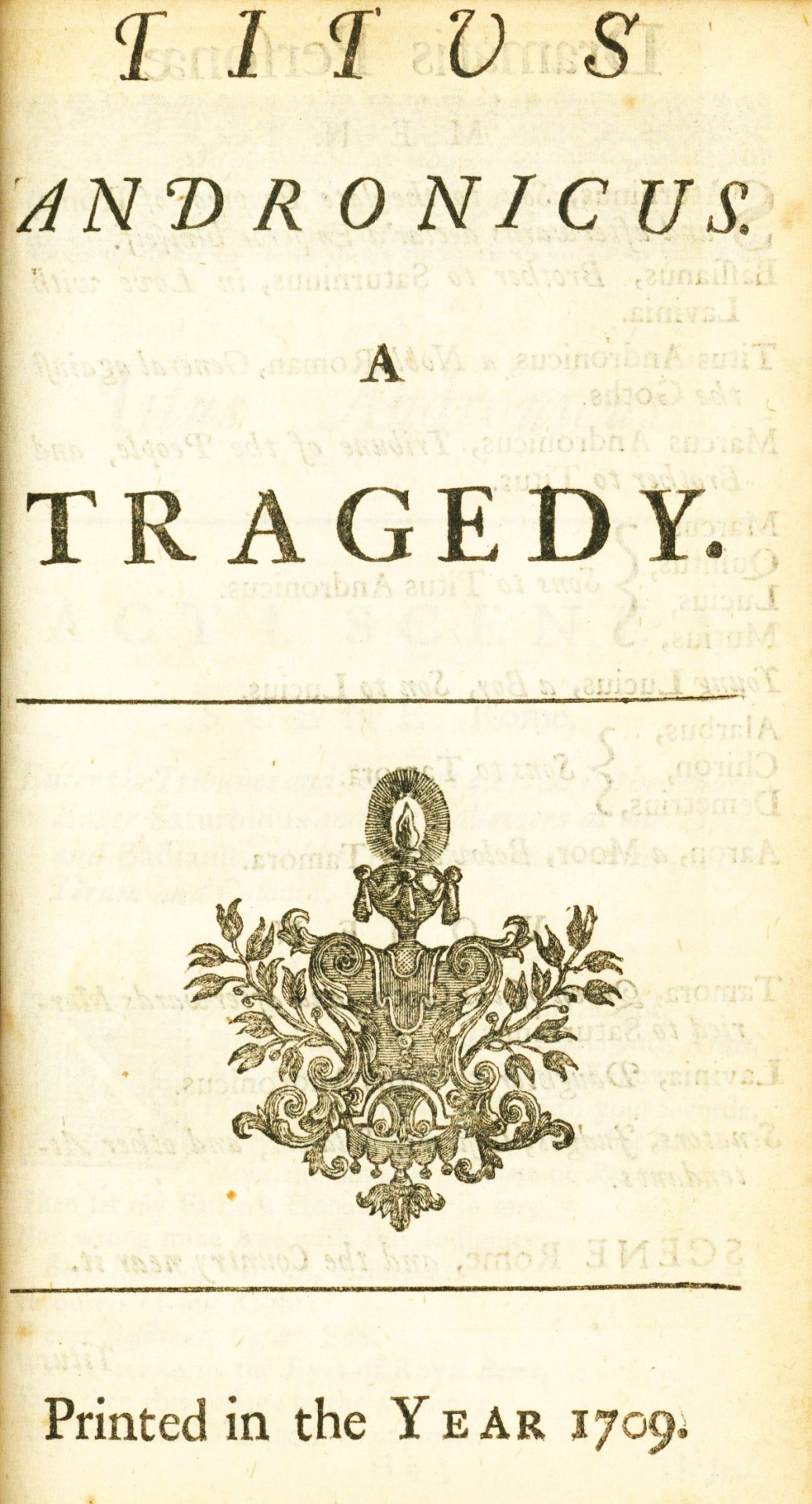
Shakespeare Weekend
This weekend we return to Nicholas Rowe’s (1674-1718) The Work of Mr. William Shakespear; in Six Volumes. Published in London in 1709 by Jacob Tonson (1655–1736), this second edition holds an important place within Shakespearean publication history. The Work of Mr. William Shakespear; in Six Volumes is recognized as the first octavo edition, the first illustrated edition, the first critically edited edition, and the first to present a biography of the poet.
Volume four picks up where volume three left off, returning readers to the Kings of England. The fourth volume begins with King Henry VI. Part III, known for having one of the longest soliloquies and more battle scenes than any other Shakespeare play. Following King Henry VI. Part III is Richard III and King Henry VIII. The volume concludes with three of Shakespeare’s tragedies; Troilus and Cressida, Coriolanus, and Titus Andronicus. A full-page engraving by the French Baroque artist and book illustrator François Boitard (1670-1715) and engraved by English engraver Elisha Kirkall (c.1682–1742) precedes each play. The Titus Andronicus engraving is particularly graphic, feeding the rumor that the play was Shakespeare’s attempt to emulate the violent and bloody plays of his contemporaries.
In addition to Rowe’s editorial decisions to divide the plays into scenes and include notes on the entrances and exits of the players, he also normalised the spelling of names and included a dramatis personae preceding each play. The only chronicled critique of Rowe’s momentous editorial endeavor is his choice in basing his text on the corrupt Fourth Folio.
View more volumes of The Works of Mr. William Shakespear; in Six Volumes here.
View more Shakespeare Weekend posts.
-Jenna, Special Collections Graduate Intern
#shakespeare weekend#nicholas rowe#the work of mr. william shakespear in six volumes#jacob tonson#king henry vi part iii#richard iii#king henry viii#troilus and cressida#coriolanus#titus andronicus#engravings#François Boitard#Elisha Kirkall
27 notes
·
View notes
Text
The promised sequel to my previous post:
If anyone wants to help me come up with drag names for these characters, please feel free!
#i’m so sorry for this. i should not be allowed to have polls#shakespeare#king john#richard ii#henry iv part 1#henry iv part 2#henry v#the henriad#henry vi part 1#henry vi part 2#henry vi part 3#richard iii#henry viii#hotspur#henry iii#henry iv#henry vi#henry vii#poll
69 notes
·
View notes
Text
Henry VI Part 3 III.ii name a better wooing scene you can't
#you can name richard iii i.ii but that's not a BETTER that's an EQUAL#ok maybe it's 0.2% superior#'to tell thee plain i aim to lie with thee'/'to tell you plain i had rather lie in prison' AAAAAAAAAAAAAHHHHHHHHHHH!!!!!!!!!!#I LOSE MY MIND EVERY TIME I START BITING MY FINGERS#literally what is more dramatic than you go to a king bc your husband was slain in his war and you beg for his lands to be restored#and the king is like hahaha sleep with me and youre like excuse me >:(#and youre just SO fucking beautiful and alluring that the king PROPOSES TO YOU ON THE SPOT#FUCK OFFFF!!!!!!!!!#ALL HER PERFECTIONS CHALLENGE SOVEREIGNTY BRO!!!!!!! ONE WAY OR OTHER SHE IS FOR A KING!!!!!!!!!!#text post#shakespeare#henry vi part 3#3 henry vi#iii henry vi#edward iv#elizabeth woodville
11 notes
·
View notes
Text
Queen Margaret's monologue from Henry VI Part 3, Act 1, Scene 4, played by Kelly Hunter in the Arkangel Shakespeare audio dramatisation of the play.
[text below]
QUEEN MARGARET
Brave warriors, Clifford and Northumberland,
Come, make him stand upon this molehill here,
That raught at mountains with outstretched arms,
Yet parted but the shadow with his hand.
What! was it you that would be England's king?
Was't you that revell'd in our parliament,
And made a preachment of your high descent?
Where are your mess of sons to back you now?
The wanton Edward, and the lusty George?
And where's that valiant crook-back prodigy,
Dicky your boy, that with his grumbling voice
Was wont to cheer his dad in mutinies?
Or, with the rest, where is your darling Rutland?
Look, York: I stain'd this napkin with the blood
That valiant Clifford, with his rapier's point,
Made issue from the bosom of the boy;
And if thine eyes can water for his death,
I give thee this to dry thy cheeks withal.
Alas poor York! but that I hate thee deadly,
I should lament thy miserable state.
I prithee, grieve, to make me merry, York.
What, hath thy fiery heart so parch'd thine entrails
That not a tear can fall for Rutland's death?
Why art thou patient, man? thou shouldst be mad;
And I, to make thee mad, do mock thee thus.
Stamp, rave, and fret, that I may sing and dance.
Thou wouldst be fee'd, I see, to make me sport:
York cannot speak, unless he wear a crown.
A crown for York! and, lords, bow low to him:
Hold you his hands, whilst I do set it on.
(Putting a paper crown on his head)
Ay, marry, sir, now looks he like a king!
Ay, this is he that took King Henry's chair,
And this is he was his adopted heir.
But how is it that great Plantagenet
Is crown'd so soon, and broke his solemn oath?
As I bethink me, you should not be king
Till our King Henry had shook hands with death.
And will you pale your head in Henry's glory,
And rob his temples of the diadem,
Now in his life, against your holy oath?
O, 'tis a fault too too unpardonable!
Off with the crown, and with the crown his head;
And, whilst we breathe, take time to do him dead.
CLIFFORD
That is my office, for my father's sake.
QUEEN MARGARET
Nay, stay; lets hear the orisons he makes.
[ Read the complete scene on the Folger Library website ]
#don't ask me about the formatting!! idk!!#obsessed with this monologue#obsessed with kelly hunter as queen margaret#she's so!! fucked up!!! I love her 😭😭😭#queen margaret#henry vi part 3#henry vi#shakespeare#btw the arkangel shakespeare audio dramas of henry vi/richard iii are great#(I mean I think they all are but I've only listened to these)#and they used the same cast for the henry vi trilogy & richard iii#except for queen margaret in richard iii where it's not kelly hunter ☹☹☹#but she's in all the henry vi plays and she's great#also david tennant plays henry vi if you care about that guy#theatre
7 notes
·
View notes
Text
The poll about the comedies has already ended but you'll find the tragedies in my 'shakespeare' tag / my pinned post.
I'll made a final poll with the winners for comedy, tragedy 1, tragedy 2 and history when we'll have the results
#polls#shakespeare#histories#king john#henry iv part 1#henry iv part 2#henry v#henry vi part 1#henry vi part 2#henry vi part 3#henry viii#richard ii#richard iii
43 notes
·
View notes
Text
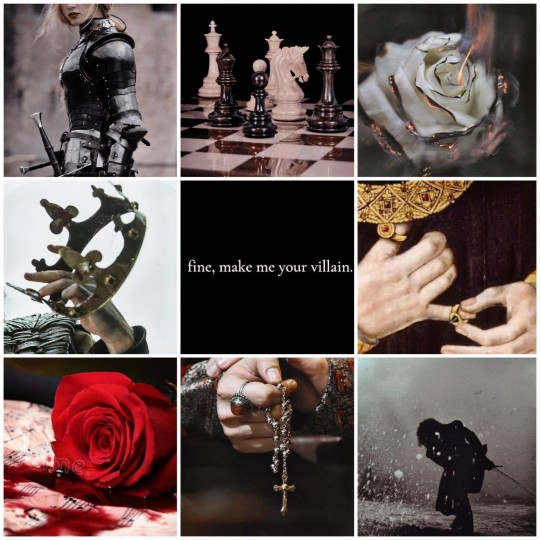
Read in 2023: Henry VI (parts 2-3) & Richard III (William Shakespeare)
"More can I bear than you dare execute."
"To weep is to make less the depth of grief:
Tears then for babes; blows and revenge for me."
"And therefore, since I cannot prove a lover,
To entertain these fair well-spoken days,
I am determined to prove a villain
And hate the idle pleasures of these days."
#i love the continuation between part 3 and richard iii#i love the opening soliloquy to richard iii#i love whatever it is that gloucester and his wife had gong on in part 2#i love margaret in part 3 and i love her cursing everyone afterwards#i just really like these ok#litedit#henry vi#richard iii#shakespeare#books in 2023
12 notes
·
View notes
Text
Regarding the 'weak' and 'laughable' qualities of Henry Tudor's claim, the history of English royal succession had long been a matter of much discussion on the Continent - 'the English kill their kings", as we shall find. There has been much nonsense written about the rights of royal inheritance in recent years from a modern, politically correct perspective. Henry's claim to the throne was as strong as that of anyone else who took it. That was how things worked centuries ago. Indeed, the most 'laughable' claim to the throne belongs to the present Hanover dynasty, whose first king, George I, was actually 58th in line but the first Protestant. Of course, in today's terms, Henry Tudor 'usurped' the throne from Richard III. However, Richard III's elder brother Edward IV had killed Henry VI and himself usurped' the crown. Richard III, in his time, had 'usurped' his nephews Edward V and Prince Richard, by calling them illegitimate and disposing of them. Henry IV had 'usurped' and killed Richard II. Any claim to the throne of England through the Danes and Germanic Saxons, to the Franco-Danish Normans, to the French Angevins and Plantagenets was nearly always disputed. There never was any solid lineal right of succession, and in contrast to the Hanoverian line, Henry VII had the first 'British’ blood of any king of England since the pagan Saxon invasions.
Owen Tudor: Founding Father of the Tudor Dynasty, Terry Breverton
#I've only just started reading this and it just reminded me of when we were all talking about the so called the divine right of kings#and how it doesn't really exist - it was more about who could sit on the throne the longest#and yes this is a book about Owen but this is part of the introduction#History#Henry Tudor#Henry VII#Henry VI#Henry IV#Richard III#Edward IV#Richard II#Medieval History#Wars of the Roses#Quotes#Books#my post
43 notes
·
View notes
Text
Since John Blackthorne is canonically a fan of the theatre, I decided to find out what he could realistically quote when describing the London theatrical scene to Mariko or Toranaga.
Regrettably he wouldn't be able to reference either King Lear or Macbeth, since they're dated to around 1605-06, so no Ran/Throne of Blood/Akira Kurosawa nods. Alas.
Also, no Henry V (1599), Julius Caesar (1599) or Hamlet (1600-1602) as he's been away from England for about two years. However, he could feasibly quote from Henry VI Parts I, II and III, Titus Andronicus, Richard III, Richard II and maybe Henry IV Parts I and II, depending on when he left to go to sea, as they're all dated up to 1598. (Plus, as @fairy-anon-godmother noted, and most fittingly for how things currently stand between he and Mariko, Romeo and Juliet!!!)
He'd also be able to quote Christopher Marlowe's Dr. Faustus (1592-93). I bet he'd love that play, purely because the main character punches the pope.
#shogun 2024#shogun fx#john blackthorne#lady mariko#toda mariko#yoshii toranaga#lord toranaga#william shakespeare#christopher marlowe#Shogun#Fx shogun
114 notes
·
View notes
Text
i realise i never actually posted my shakespeare gay sex powerpoint here so i’m gonna share the rankings thumbsupemoji
here’s how much each shakespeare play would get improved by gay sex but WITHOUT the explanations.
10/10 (the winners)
- love’s labour’s lost
- romeo and juliet
- a midsummer night’s dream
- hamlet
- twelfth night
- troilus and cressida
- coriolanus
- the tempest
9/10
- henry vi part 3
- the merchant of venice
- julius caesar
- pericles, prince of tyre
8/10
- titus andronicus
- comedy of errors
- henry iv part 1
7/10
- the taming of the shrew
- richard ii (this is only because i saw a boring production once. im sure its actually great gay)
- henry iv part 2
- henry v
- king lear
- antony and cleopatra
- cymbeline
6/10
- henry vi part 2
- richard iii
- king john
- macbeth
5/10
- the merry wives of windsor
- as you like it
- henry viii
4/10
- henry vi part 1
3/10
- the two gentlemen of verona
- othello (im standing by this one <3)
1/10 (there are no 2/10s)
- measure for measure
- the winter’s tale
0/10
- the two noble kinsmen
-8/10
- all’s well that ends well
and an honourable mention to the much ado about nothing rank:

i am open for questions. godspeed
#shakespeare#shakespeare plays#loves labours lost#romeo and juliet#a midsummer night's dream#hamlet#twelfth night#troilus and cressida#coriolanus#the tempest#much ado about nothing#macbooth original
212 notes
·
View notes
Text
Best Shakespeare Adaptations Tournament

THE BRACKET!
the final round will begin soon!
all tournament related stuff, including the polls, will be under the tag 'tournament'.
"what is 'best'?"
that's up to you, but what i'm hoping for is people judging more on individual quality rather than accuracy!
lineup
SIDE A
Rosencrantz and Guildenstern are Dead (Hamlet)
Elsinore (Hamlet)
Hamletmachine (Hamlet)
Lion King 1.5 (Rosencrantz and Guildenstern are Dead)
Fat Ham (Hamlet)
To Be or Not To Be (Hamlet)
Haider (Hamlet)
Fortinbras (Hamlet)
My Own Private Idaho (Henry IV & Henry V)
The Prince (Henry IV and Hamlet)
American Moor (Othello)
Enter the Body (King Lear, Hamlet, Romeo & Juliet)
Nothing Much to Do (Much Ado About Nothing)
10 Things I Hate About You (The Taming of the Shrew)
Requiem of the Rose King (Richard III & Henry VI Part 3)
Teenage Dick (Richard III)
SIDE B
Gnomeo and Juliet (Romeo and Juliet)
All Shook Up (Twelfth Night)
She's the Man (Twelfth Night)
Duodecimal (Twelfth Night)
These Violent Delights (Romeo & Juliet)
West Side Story (Romeo & Juliet)
Teen Beach Movie (West Side Story)
Prince of Cats (Romeo & Juliet)
Ran (King Lear)
A Thousand Acres (King Lear)
The Witch From Mercury (The Tempest)
Return to the Forbidden Planet (The Tempest)
Love's Labors Lost (same— musical adaptation)
Foul is Fair (MacBeth)
ShakespeareRetold MacBeth/MacChef (MacBeth)
Throne of Blood/Kumonosu-jō (MacBeth)
#tournament#shakespeare#the witch from mercury#rosencrantz and guildenstern are dead#duodecimal#west side story#lion king#my own private idaho#haider#requiem of the rose king#hamlet#henriad#romeo & juliet#she's the man#the prince#fat ham#ok im not tagging everything#lit#chitra.txt
67 notes
·
View notes
Text
Shakespeare Weekend

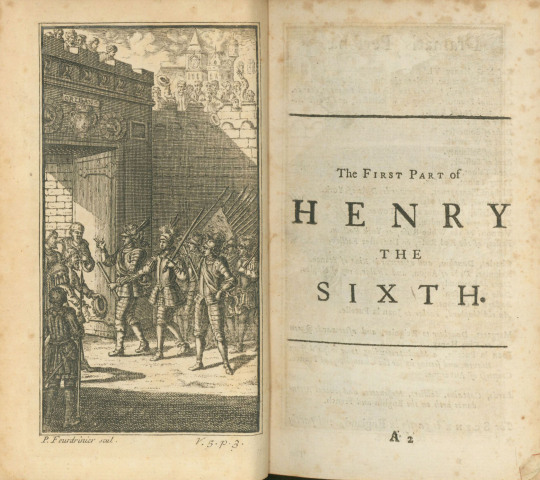
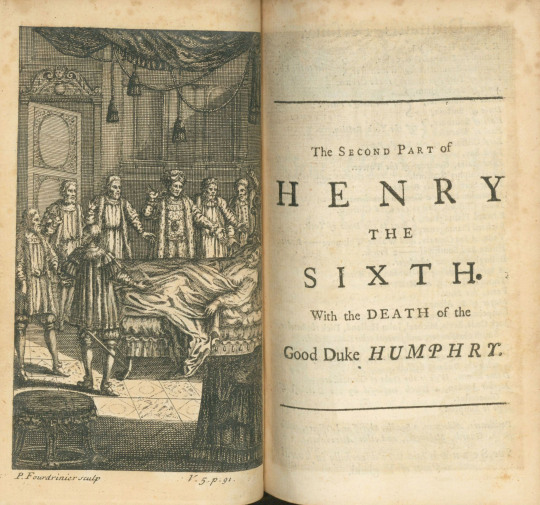


This weekend we return to The works of Mr. William Shakespear: in ten volumes with the fifth volume published in 1728 by Alexander Pope (1688-1744) and Dr. George Sewell (d. 1726) for Jacob Tonson. Volume Five is made up of King Henry VI Part I, King Henry VI Part II, King Henry VI Part III, and King Richard III. The four plays create a tetralogy that covers the entire saga of the Wars of the Roses, a series of 15th century civil wars fought to determine control of the English throne.
King Henry VI Part I enacts the loss of England’s French territories and the political momentum spurring on the Wars of the Roses. Part II delves into King Henry’s failings and the rise of the Duke of York. Part III documents the chaos and horror of war and contains one of the longest soliloquies in all of Shakespeare. The volume ends with King Richard III depicting the violent rise and short reign of King Richard III.
Like Rowe’s earlier collection, scene divisions, stage directions, dramatis personae, and full-page engravings by either French artist Louis Du Guernier (1677-1716) or Englishman Paul Fourdrinier (1698-1758) precede each play.
Pope’s editions of Shakespeare were the first attempted to collate all previous publications. He consulted twenty-seven early quartos restoring passages that had been out of print for almost a century while simultaneously removing about 1,560 lines of material that didn’t appeal to him. Some of those lines were degraded to the bottom of the page with his other editorial notes.
View more Shakespeare Weekend posts.
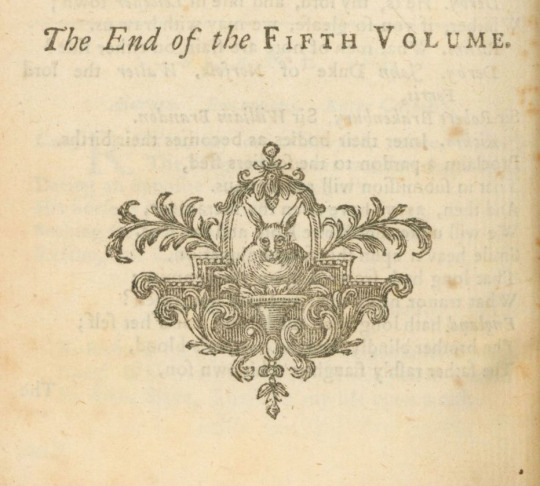
-Jenna, Special Collections Graduate Intern
#william shakespeare#shakespeare#alexander pope#dr. george sewell#jacob tonson#tetralogy#King Henry VI Part I#King Henry VI Part II#King Henry VI Part III#King Richard III#louis du guernier#paul fourdrinier#shakespeare weekend#engravings
17 notes
·
View notes
Text
#next time it’s the henries in a drag race. somebody stop me#sorry if i missed some gloucesters#gloucester in lear has no canonical name yet i’ve decided it’s edward. a family of eds#shakespeare#poll#richard ii#henry iv#henry iv part 2#henry v#henry vi#henry vi part 1#henry vi part 2#henry vi part 3#richard iii#king lear#polls#original post
93 notes
·
View notes